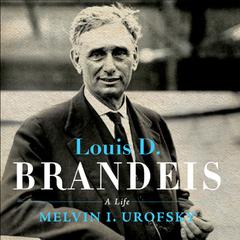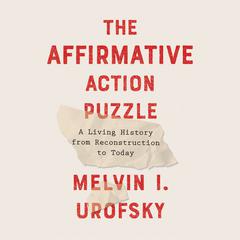 Play Audiobook Sample
Play Audiobook Sample
Dissent and the Supreme Court: Its Role in the Court's History and the Nation's Constitutional Dialogue Audiobook
 Play Audiobook Sample
Play Audiobook Sample
Quick Stats About this Audiobook
Total Audiobook Chapters:
Longest Chapter Length:
Shortest Chapter Length:
Average Chapter Length:
Audiobooks by this Author:
Publisher Description
From the admired judicial authority, author of Louis D. Brandeis (“Remarkable”—Anthony Lewis, The New York Review of Books; “Monumental”—Alan M. Dershowitz, The New York Times Book Review), Division and Discord, and Supreme Decisions—Melvin Urofsky’s major new book looks at the role of dissent in the Supreme Court and the meaning of the Constitution through the greatest and longest lasting public-policy debate in the country’s history, among members of the Supreme Court, between the Court and the other branches of government, and between the Court and the people of the United States. Urofsky writes of the necessity of constitutional dialogue as one of the ways in which we as a people reinvent and reinvigorate our democratic society. In Dissent and the Supreme Court, he explores the great dissents throughout the Court’s 225-year history. He discusses in detail the role the Supreme Court has played in helping to define what the Constitution means, how the Court’s majority opinions have not always been right, and how the dissenters, by positing alternative interpretations, have initiated a critical dialogue about what a particular decision should mean. This dialogue is sometimes resolved quickly; other times it may take decades before the Court adjusts its position. Louis Brandeis’s dissenting opinion about wiretapping became the position of the Court four decades after it was written. The Court took six decades to adopt the dissenting opinion of the first Justice John Harlan in Plessy v. Ferguson (1896)—that segregation on the basis of race violated the Constitution—in Brown v. Board of Education (1954). Urofsky shows that the practice of dissent grew slowly but steadily and that in the nineteenth century dissents became more frequent. In the (in)famous case of Dred Scott v. Sanford (1857), Chief Justice Roger Taney’s opinion upheld slavery, declaring that blacks could never be citizens. The justice received intense condemnations from several of his colleagues, but it took a civil war and three constitutional amendments before the dissenting view prevailed and Dred Scott was overturned. Urofsky looks as well at the many aspects of American constitutional life that were affected by the Earl Warren Court—free speech, race, judicial appointment, and rights of the accused—and shows how few of these decisions were unanimous, and how the dissents in the earlier cases molded the results of later decisions; how with Roe v. Wade—the Dred Scott of the modern era—dissent fashioned subsequent decisions, and how, in the Court, a dialogue that began with the dissents in Roe has shaped every decision since. Urofsky writes of the rise of conservatism and discusses how the resulting appointments of more conservative jurists to the bench put the last of the Warren liberals—William Brennan and Thurgood Marshall—in increasingly beleaguered positions, and in the minority. He discusses the present age of incivility, in which reasoned dialogue seems less and less possible. Yet within the Marble Palace, the members of the Supreme Court continue to hear arguments, vote, and draft majority opinions, while the minority continues to “respectfully dissent.” The Framers understood that if a constitution doesn’t grow and adapt, it atrophies and dies, and if it does, so does the democratic society it has supported. Dissent—on the Court and off, Urofsky argues—has been a crucial ingredient in keeping the Constitution alive and must continue to be so. (With black-and-white illustrations throughout.)
Download and start listening now!
Dissent and the Supreme Court Listener Reviews
Be the first to write a review about this audiobook!
About Melvin I. Urofsky
Melvin I. Urofsky is professor of law and public policy at Virginia Commonwealth University. He is the coeditor of the five-volume collection of Louis Brandeis’ letters and the author of American Zionism from Herzl to the Holocaust and Louis D. Brandeis and the Progressive Tradition. He lives in Gaithersburg, Maryland.
About Dan Woren
Dan Woren is an American voice actor and Earphones Award–winning narrator. He has worked extensively in animation, video games, and feature films. He is best known for his many roles in anime productions such as Bleach and as the voice of Sub-Zero in the video game Mortal Kombat.





